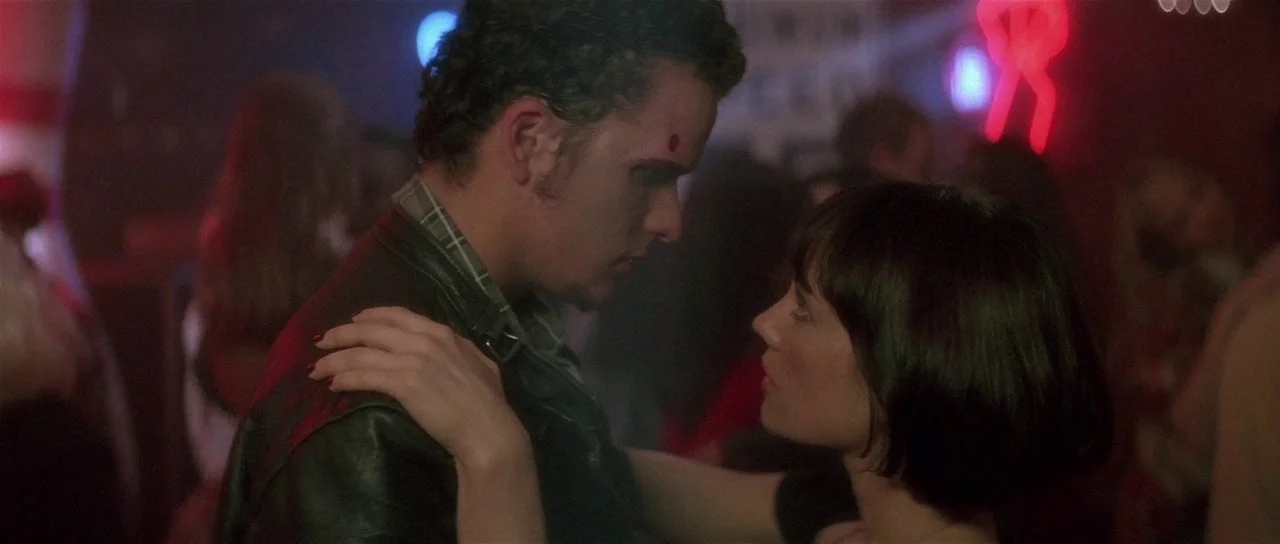An Endless Strip of American Road
An Endless Strip of American Road
by Karenna Umscheid
Lost Highway, along with Inland Empire, is one of the most difficult David Lynch films to watch. It’s violent and relentlessly dark, nauseatingly confusing – and only slightly psychosexual. Last year, I watched Long Highway as part of a double feature at the Brattle Theater with Mulholland Drive, and it made Mulholland Drive feel comparatively like a light, happy film. It lacks a typical narrative structure and feels potently nightmarish at numerous moments. Unlike Wild at Heart or even small moments of Inland Empire, Lost Highway has no funny moments, no comic relief or easing of tension. Perhaps this is why Lost Highway is so powerful; it is entirely unrelenting yet intentionally incomprehensible at the same time. It is difficult to watch and difficult to even attempt to understand – but I see this as the power and intention of the film, a skill to be celebrated and adored.
I’ve written numerous times in numerous places about the surreal, impossible-to-replicate power of a collective theater experience, most potent in the fields of comedy and horror, for how the illicit reactions out of audiences. Enjoying a harrowing film experience as a collective theatrical audience is impossible to replicate. It’s a magical over-two-hour ride enclosed in darkness, leaving the viewer subject to anything the film could inflict on them. Having experienced this with Lost Highway at the Brattle, I can say with certainty that it is an unforgettable, informative experience. Its abstract nature and bleak tone can be difficult to fully comprehend when watched at home. But in a dark theater, everything comes right at you with full force, as themes of guilt and regret choke you with horror.
Throughout his filmography, Lynch dissects the disturbed, evil underbelly of American society. This is maybe most evident in the symbolism embedded throughout Blue Velvet, but it's a cornerstone of his filmic ideology, spanning from Eraserhead through Twin Peaks, to Mulholland Drive, Lost Highway, and Inland Empire. Lost Highway is more abstract than most of his works (not as abstract as Lost Highway, though!) and requires a committed, complete open-mindedness in order to properly absorb it. In each horrifying corridor, the personal demons emerge, increasingly more and more potent, their faces invite migraines and nightmares. The dark underbelly has never been darker.
I fear that I have now done the opposite of my intention with this blog post, which was to encourage people to see Lost Highway in theaters. Per usual, I got too lost in my own thoughts; my obsessive love for David Lynch’s films always finds its way through my words no matter what I’m writing. Though the intensity might not be for everyone, the sheer power of a dark, long film screening like that of Lost Highway is an incredible experience in regard to how it harnesses the power of film, and all of its significance.
Lost Highway screens at the Brattle Theater on Thursday, November 30, 2023.
Until next time,
Karenna
Photograph: [Film Grab]



